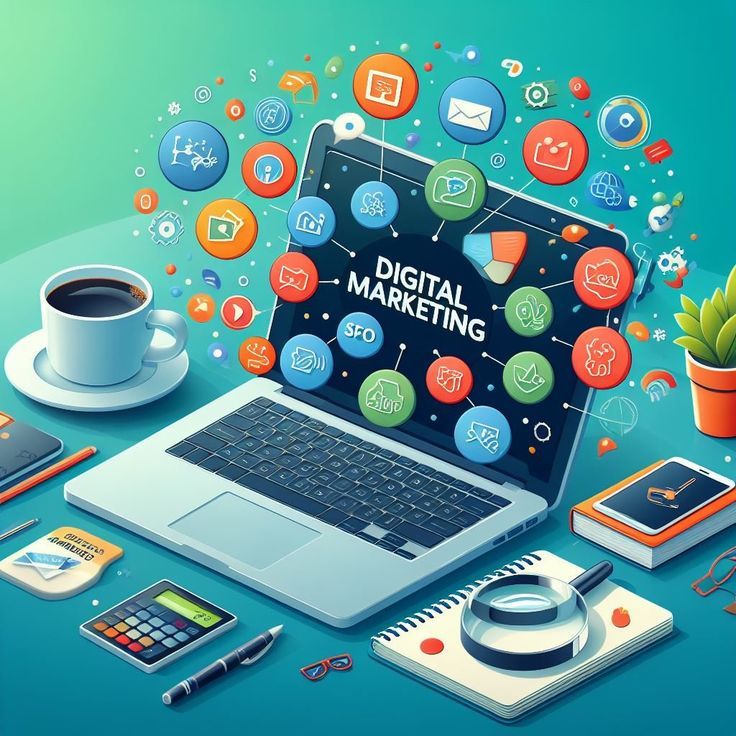Digital marketing is evolving faster than ever. Businesses must adapt to new technologies, shifting consumer behaviors, and emerging platforms to remain competitive. Understanding the future of digital marketing is essential for creating strategies that drive engagement, leads, and revenue in 2026 and beyond.
From AI and automation to voice search and immersive experiences, the coming year will redefine how brands connect with audiences. Staying updated on these trends can mean the difference between leading your market and falling behind competitors.
1. Artificial Intelligence and Automation
AI is set to dominate digital marketing in 2026. Predictive analytics, automated customer segmentation, and AI-powered content creation help marketers deliver personalized experiences at scale.
Automation tools for email campaigns, social media posting, and ad management save time while improving targeting accuracy. Additionally, AI can analyze customer behavior to suggest personalized product recommendations, content, and even pricing strategies. Businesses that adopt AI and automation early will gain a significant competitive advantage.
Example: AI-powered chatbots can provide instant customer support 24/7, answer FAQs, and guide users through the purchasing process, increasing conversions and improving user experience.
2. Voice Search and Conversational Marketing
Voice search adoption continues to grow with smart devices and virtual assistants like Alexa, Google Assistant, and Siri. Optimizing for natural language queries and creating conversational content will be critical in the future of digital marketing.
Brands can also leverage chatbots and voice-enabled assistants to provide instant recommendations, schedule appointments, or complete transactions. This trend emphasizes creating content in a more conversational tone, answering real user questions directly, and using structured data to improve search visibility.
Tip: Focus on long-tail, question-based keywords and FAQs in your content to capture voice search traffic.
3. Video and Interactive Content
Video marketing will remain a dominant force. Short-form videos, live streaming, and interactive content engage audiences more effectively than static posts.
In 2026, marketers should also explore immersive experiences like augmented reality (AR) and virtual reality (VR). AR can allow users to virtually try products before purchasing, and VR can provide immersive brand experiences. Polls, quizzes, and shoppable videos not only increase engagement but also drive conversions and strengthen brand loyalty.
Example: A fashion retailer can use AR filters so users can “try on” outfits virtually via Instagram or TikTok.
4. Social Commerce and Shoppable Platforms
Social media is increasingly becoming a direct shopping platform. Instagram Shops, TikTok Shopping, and Pinterest Buyable Pins allow users to discover and purchase products without leaving the app.
Brands integrating social commerce can shorten the buyer journey, encourage impulse purchases, and expand reach to new audiences. In 2026, more platforms are expected to incorporate shopping features, making social commerce an essential part of digital marketing strategies.
Tip: Promote limited-time offers, bundle deals, and exclusive social media discounts to drive instant conversions.
5. Personalization and Customer-Centric Strategies
Consumers now expect highly personalized experiences across all channels. From tailored email campaigns to AI-driven product recommendations, personalization will be a major focus in 2026.
Using customer data, purchase history, and browsing behavior enables brands to predict needs, segment audiences effectively, and deliver relevant messaging. Personalized recommendations and targeted promotions can significantly increase engagement and conversions.
Example: E-commerce brands can send personalized emails based on cart abandonment, previous purchases, or browsing patterns to recover potential lost sales.
6. Data Privacy and Ethical Marketing
With rising concerns about data privacy, brands must prioritize transparency and ethical marketing practices. Compliance with regulations such as GDPR and CCPA will remain critical.
Marketers who respect consumer privacy while delivering valuable experiences will build trust and foster long-term relationships. Transparent privacy policies, opt-in consent, and responsible data handling will be non-negotiable elements in the future of digital marketing.
Tip: Educate your audience about how their data is used and provide easy options to manage preferences.
Key Takeaways for 2026
The future of digital marketing in 2026 is driven by technology, personalization, and customer-centric strategies. AI, automation, voice search, video content, social commerce, and ethical practices will define successful campaigns.
Brands that embrace these trends early will stay ahead of competitors, create meaningful connections with their audiences, and achieve sustainable growth in the ever-evolving digital landscape.


